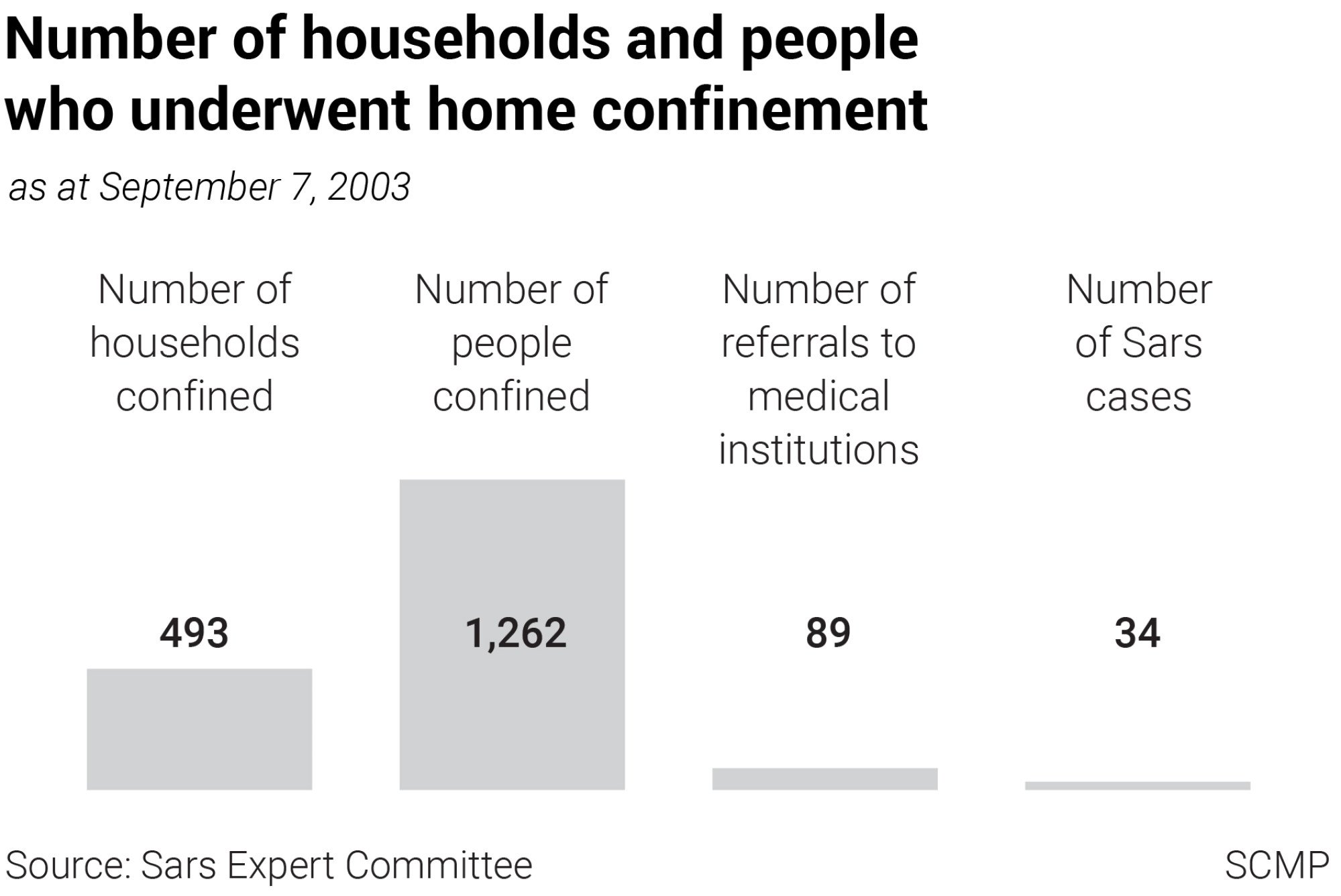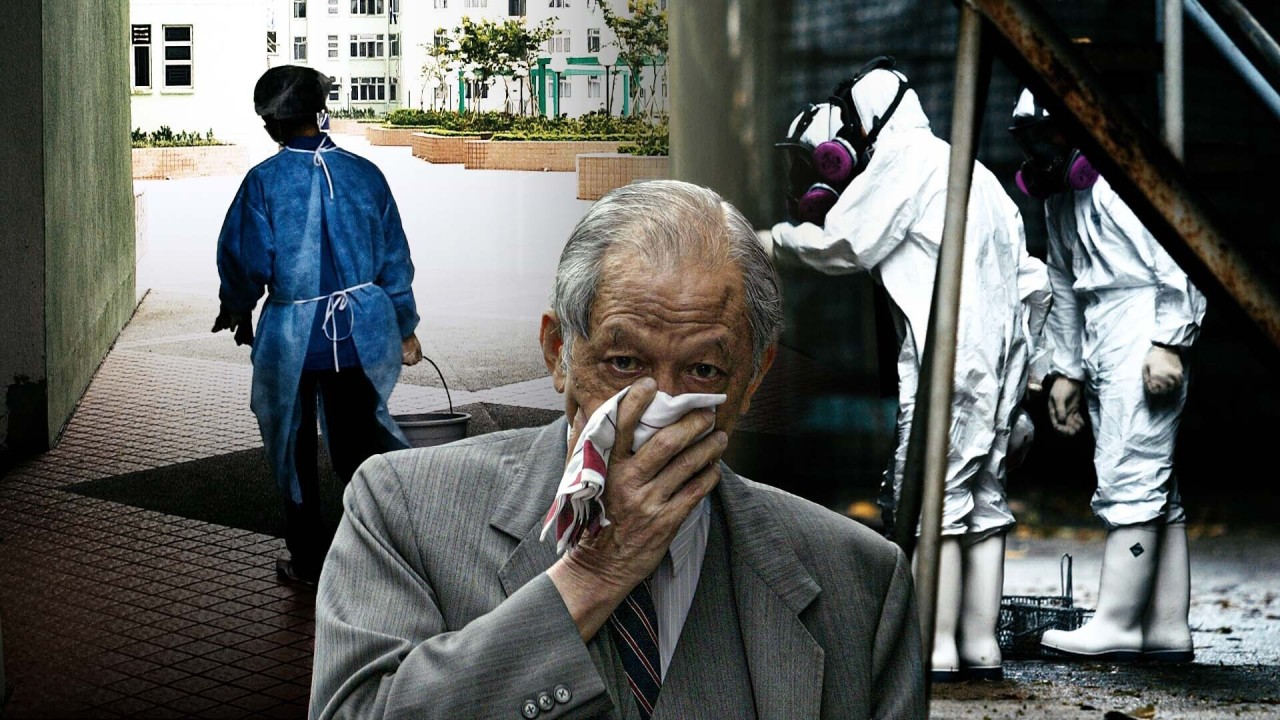
20 years after Sars: Hong Kong’s Amoy Gardens faced Covid-19 calmly, without 2003’s chaos, infections and deaths
- We learned to be proactive and not wait for the government to tell us what to do, estate chief says
- Sars taught healthcare workers about personal protection, treatment and the need to review actions
Wilson Yip Hing-kwok is grateful that Amoy Gardens, where he has lived for four decades, did not make headlines during the past three years of the Covid-19 pandemic.
There was no major outbreak of cases. There was no lockdown of blocks. There was no panic among the thousands of residents in the 19 high-rise towers that make up the sprawling private housing estate in Kowloon.
“Although Covid-19 was even more infectious than Sars, people were less scared than in 2003,” said Yip, 71, chairman of the Amoy Gardens Owners Joint Committee. “After Sars, our anti-epidemic measures have been sufficient and the residents, highly vigilant.”

What a difference 20 years makes. The Sars epidemic remains a vivid nightmare for long-time residents.
Of the 1,755 people infected with Sars in Hong Kong from late February to early June 2003, more than 320 patients lived in Amoy Gardens. Of the city’s 299 recorded deaths, 42 were from the estate.
Most cases occurred in Block E, where the outbreak was sparked by the visit of an infected man from Shenzhen.
When sewage pipes were identified as the cause of the rapid spread of the virus through the 33-storey block, all the residents were sent to quarantine in two holiday villages.
Yip recalled the shroud of fear engulfing the estate when Sars first emerged, as residents had little information and the government’s response was slow.
“Our residents were only informed of how serious the situation was after their infected neighbours were sent to intensive care units,” he said.
“Many decided to move out. When the government finally imposed a lockdown, Block E only had one-third of its residents left, around 240.”
During the outbreak, the residents’ group installed an ultraviolet light sanitiser and sanitiser dispensers in the lobby of Block E.

After the epidemic, a flaw in the bathroom drainage system was fixed to prevent contaminated aerosols spreading between flats.
Yip said Sars taught residents to be prepared and to take action without waiting for the authorities.
When Covid-19 emerged in early 2020, notices went up in Amoy Gardens, reminding residents to wear their masks and check that all was well with their bathroom drainage systems.
Coronavirus: more housing blocks to be inspected after Tsing Yi evacuation
The estate recorded its first Covid-19 case more than 200 days after the epidemic began.
Yip said the residents were much calmer than in 2003 and remained vigilant from the start.
“Anti-epidemic measures should be adopted quickly, early and precisely. We should not wait until the government tells us what to do,” he said.

‘We didn’t know to discard N95 masks’
The Sars experience equipped Hong Kong’s healthcare workers to face the Covid-19 pandemic.
Respiratory medicine specialist Dr Ho Chung-man, who treated Sars patients at Queen Mary Hospital, said using a cocktail of medications to treat patients was designed in 2003 but that was shelved when Sars ended within three months.
“Those plans were rolled out at the start of the Covid-19 pandemic,” he said, pointing out that the coronaviruses behind Sars and Covid-19 were similar.
Currently chairman of the Hong Kong Lung Foundation, he recalled how little healthcare workers knew about using personal protective gear back in 2003.

“We didn’t know that an N95 mask had to be replaced after use,” he said. “We just used a brown paper bag to store the mask and reused it.”
Today, there are stringent guidelines for using personal protective gear, including a test to ensure that the N95 respirator fits properly. The number of isolation facilities in public hospitals has also increased greatly.
Many improvements to Hong Kong’s healthcare infrastructure for infectious diseases came from 46 recommendations by a panel of international experts tasked by the government to review the city’s handling of the Sars epidemic.
They included establishing the Centre for Health Protection, which played a major role during Covid-19, and advising the government to improve its public communication during a major outbreak.

The Legislative Council also conducted a review and published a report criticising the government’s handling of Sars, leading to the resignation of then health minister Dr Yeoh Eng-kiong and Hospital Authority chairman Dr Leong Che-hung.
The authority, which oversees the city’s public healthcare institutions, also carried out a review.
Professor Sian Griffiths, a British public health expert who co-chaired the government-appointed expert panel 20 years ago, said that Sars reminded the medical community how to handle infectious diseases properly.
“Sars was a wake-up call that in the modern world, there is a huge need to be very vigilant for the emergence of new diseases, and to understand that diseases can jump from animal to man,” she said.
Covid-19 provided another opportunity to look at issues like environment and health, she added. A review was important for the government, scientists and the public to learn from an epidemic experience.
Surviving Sars (2002-2007): Hong Kong’s first hurdles in 25 photos
But with nearly 3 million recorded Covid-19 infections and more than 13,000 Covid-linked deaths in Hong Kong, city leader John Lee Ka-chiu has rejected calls from experts for an independent investigation over Hong Kong’s handling of the pandemic, saying the government had been conducting internal reviews continually.
Griffiths said an independent review would give an objective view and more convincing findings, which the public would be more receptive to, and added that the government should also make public the results of internal reviews.
“It’s about openness, transparency, communication and helping prevent the problems that occurred,” she said.
A Covid-19 inquiry is ongoing in the UK and Griffiths said it covered all aspects of the pandemic, from start to finish. It was examining the public health response across the country, the response of the health and care sector, the economic response to the pandemic and its impact, and would identify lessons to be learned.
June 23, 2003: Hong Kong free of Sars, WHO declares
She said one thing Hong Kong should look into was the zero-Covid policy upheld by mainland China and Hong Kong throughout most of the three-year pandemic, even after most other countries had switched to living with the virus.
“Zero Covid could save more lives – but it also had other costs and these need to be weighed against the benefits of trade, economics, social isolation, mental health burden, and other medical conditions being ignored,” she said.
Hong Kong’s top virologist Professor Malik Peiris, who serves on advisory committees for the city and the World Health Organization, also supported a review of the Covid-19 experience though he said a legal proceeding which could result in fault-finding was not necessary.
“Learning from the Covid experience ... is absolutely necessary. It makes no sense not to learn from the experience,” he said.
Lessons from Sars help engineers solve hospitals’ Covid-19 challenges
But he also said there could be disadvantages in conducting such an exercise, including having to divert healthcare workers to produce data for a review and the risk of a “trial-by-media”.
“Such an outcome will not be conducive to a productive opportunity to learn from experience,” he said.
Countries around the world are conducting different forms of review over the Covid-19 pandemic. The UK, New Zealand and Australia are among countries conducting inquiries, and Singapore recently published a white paper on the government’s review of the pandemic response.
As someone who helped discover the coronavirus behind Sars in 2003, Peiris said new infections were emerging more frequently due to human activity, such as cutting down forests, the wild game animal trade and animal husbandry, climate change and biodiversity loss.
How will Covid-19 play out for Hong Kong’s property market?
Studies have suggested that the Covid-19 pandemic could have originated from a market in Wuhan, where wild animals were slaughtered and sold as food.
Without commenting on what Hong Kong should do in a review, Peiris embraced a wider vision and hoped that the world would learn from Covid-19 and be humble before nature.
“We really have to respect nature and we have to live in harmony with nature. That should be the overarching lesson of Covid,” he said.
“Covid could be a wake-up call … to act not just in regard to emerging infectious diseases, but even to think beyond that at a higher level, including climate change, environment and biodiversity loss, because all these things are interrelated.”



